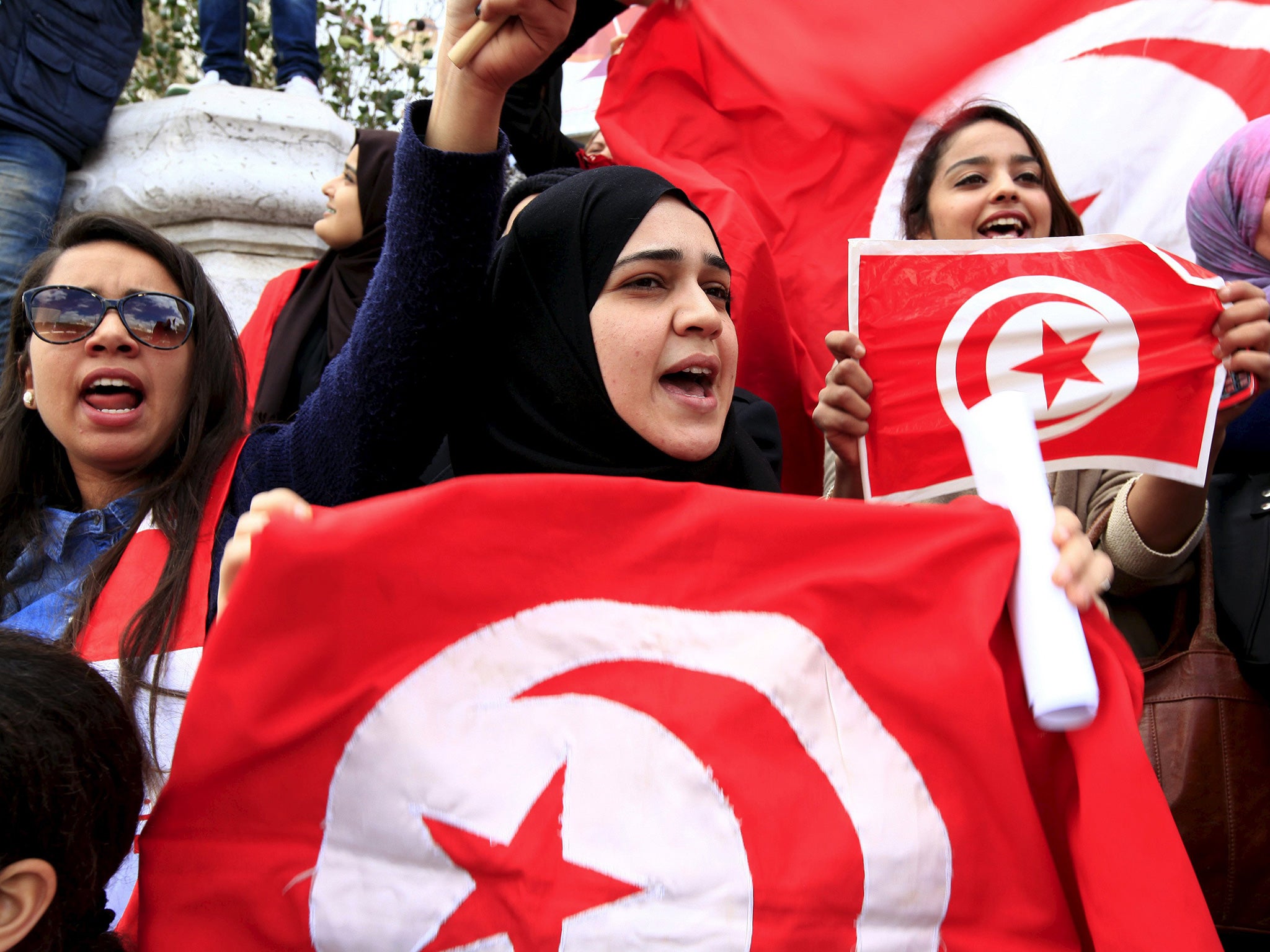Tunis museum attackers wore belts packed with explosives
President says death toll could have been worse

Your support helps us to tell the story
From reproductive rights to climate change to Big Tech, The Independent is on the ground when the story is developing. Whether it's investigating the financials of Elon Musk's pro-Trump PAC or producing our latest documentary, 'The A Word', which shines a light on the American women fighting for reproductive rights, we know how important it is to parse out the facts from the messaging.
At such a critical moment in US history, we need reporters on the ground. Your donation allows us to keep sending journalists to speak to both sides of the story.
The Independent is trusted by Americans across the entire political spectrum. And unlike many other quality news outlets, we choose not to lock Americans out of our reporting and analysis with paywalls. We believe quality journalism should be available to everyone, paid for by those who can afford it.
Your support makes all the difference.Gunmen who shot dead 21 people at Tunisia’s Bardo Museum were also armed with explosive suicide belts and would have killed many more had police not reacted so quickly to the attack, the country’s president said last night.
In an Independence Day television address, President Beji Caid Essebsi described the carnage as a “great disaster” but said it could have been much worse.
Speaking of the police response, he said: “Their intervention stopped the terrorists from setting off their explosive belts, which would have caused more than 100 deaths if they had detonated.”
His address came on the day, the 59th anniversary of independent from France, that thousands of people gathered on the main Avenue Habib Bourguiba in the heart of the capital in the wake of the massacre that threatened to throw the fledgling democracy into dissaray.
Some danced while draped in Tunisian flags. “We will continue with our path to democracy,” promised Soumaya Said, a young woman waving a sign saying “We’re Bardo, We are Tunisia, We are against Terrorism”,
Adib Adela, a school inspector from the southern Tunisian town of Zarzis, said the rally had special significance in the wake of the attacks. “We are here to support the language of tolerance, not of violence,” he said.
The show of national unity came as more details emerged about the two men who killed 20 foreign tourists the Bardo Museum. Yassine Laabidi and Hatem Khachnaoui travelled to Libya in December to receive weapons training in December, said the authorities. Laabidi hailed from the working-class Tunis suburb of Ibn Khaldun, and Khachnaoui was from the western town of Sbeitla.
The European Union pledged to step up help for Tunisia yesterday.
“Events in the southern Mediterranean are dangerous for Europe,” European Council President Donald Tusk told a news conference after an EU summit in Brussels. “We have to offer everything we can to stabilise the situation in Tunisia. We can’t say Tunisia is destabilised after this terrorist attack, but the risk is quite obvious,” he added.
Foreign Secretary Philip Hammond has said the UK Government “stands ready” to send specialist counter-terrorism police to support the post-attack investigation.
For some in Tunisia, the attack was evidence that authorities had not done enough to battle the threat of terror. “We’ve been experiencing the problem of terrorism for three years and the authorities haven’t done enough,” Mr Adela, who is a member of the leftist Popular Front movement, said. “The most important thing is to hold a proper investigation, and to find out who was behind this,” he added
The repatriation of the injured has begun, with four Polish patients and two French patients being evacuated from Hospital Charles Nicolle, the main hospital where those injured in the attack have been housed, being flown out yesterday afternoon.
“I have been very well treated and would definitely return to Tunisia,” a Polish patient told The Independent, smiling as he was wheeled into an ambulance on his way to the airport.
Poland’s foreign ministry said yesterday that a third Polish citizen was confirmed dead after Wednesday’s attack. Ten Poles were wounded in the attack, it said in a statement.
On Thursday, the ministry said it had established that two Polish citizens were among the tourists shot by gunmen, with one presumed missing.
Professor Anis Klouz, head of the crisis group in Tunis that is overseeing the medical and counselling services for the victims and their families, said the majority of victims had now been identified.
Tunisian Health Minister Samar Samoud told The Associated Press yesterday the latest tally of victims included four Italians, three Japanese and three French, two Spanish and two Colombians and one citizen each from Britain, Poland and Belgium.
Join our commenting forum
Join thought-provoking conversations, follow other Independent readers and see their replies
Comments